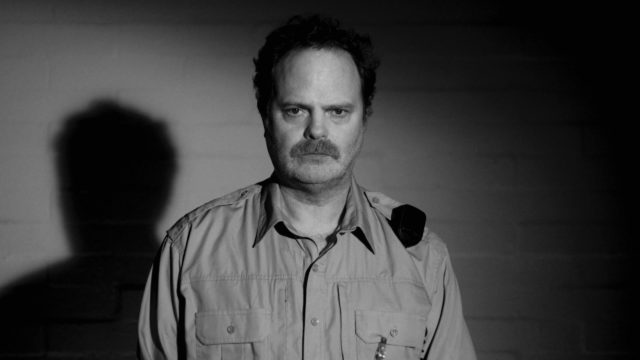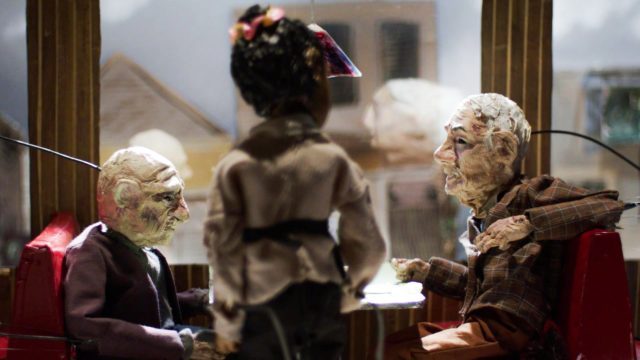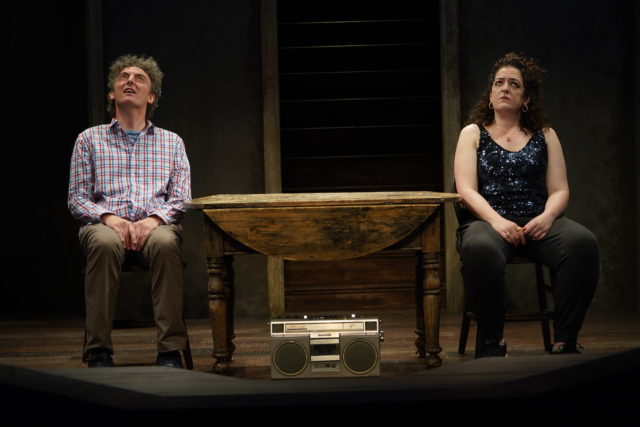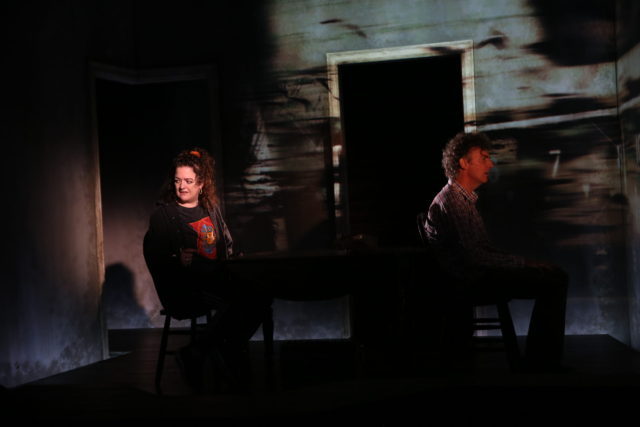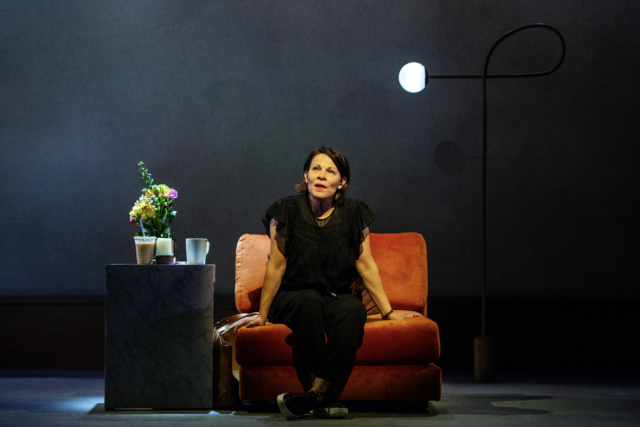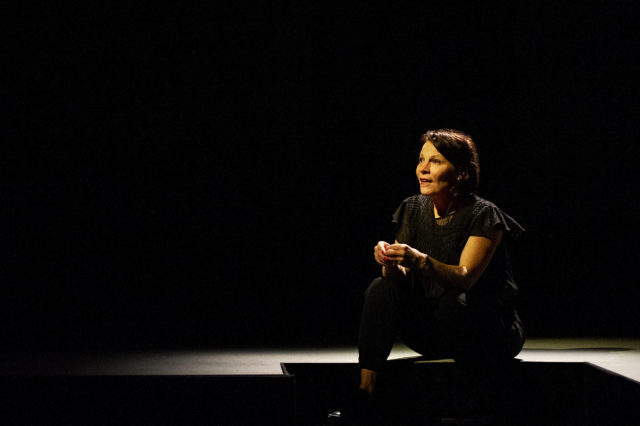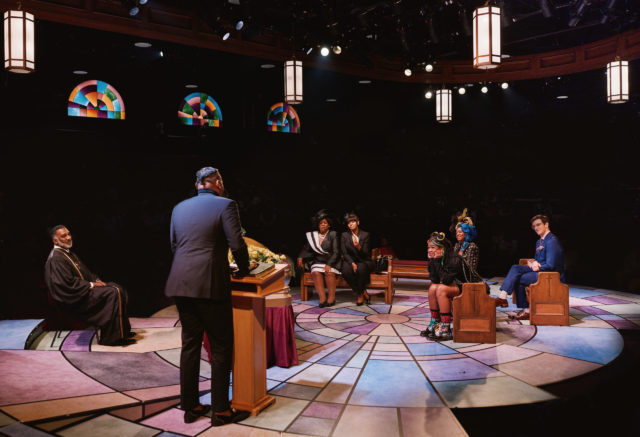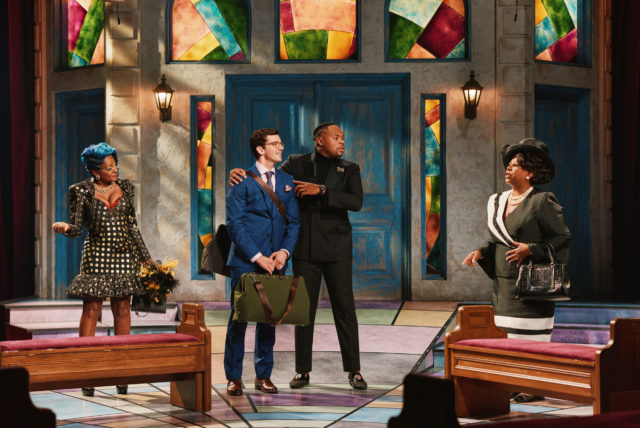
Six queens battle it out to see who has it worst in Six (photo by Joan Marcus)
SIX
Brooks Atkinson Theatre
256 West Forty-Seventh St. Between Broadway & Eighth Ave.
Thursday – Tuesday through September 4, $99-$279
sixonbroadway.com
The premise of the new Broadway musical Six is as simple as its title: The six wives of Henry VIII battle it out in an American Idol–like competition to determine which of them had it worst, a riotous twist on the old game show Queen for a Day, in which women shared their personal problems on television, with the most heart-wrenching tale earning its forlorn teller a crown and various sponsored prizes.
Fighting it out in Six, which premiered at the 2017 Edinburgh Fringe Festival and made its way across the UK and to Australia, Canada, Chicago, and Massachusetts before landing at the Brooks Atkinson Theatre, are the divorced Catherine of Aragon (Adrianna Hicks); the beheaded Anne Boleyn (Andrea Macasaet); Jane Seymour (Abby Mueller), who died shortly after giving birth; the divorced Anna of Cleves (Brittney Mack); the beheaded Katherine Howard (Samantha Pauly); and Catherine Parr (Anna Uzele), who survived Henry. Each woman makes her case in a spotlighted solo, set to music that ranges from pop to hip-hop to R&B and techno, performed onstage by the Ladies in Waiting: conductor and keyboardist Julia Schade, bassist Michelle Osbourne, guitarist Kimi Hayes, and drummer Elena Bonomo. The playful orchestrations are by Tom Curran, with flashy choreography by Carrie-Anne Ingrouille, the music and movement referencing Adele, Britney Spears, Beyoncé, the Spice Girls, and other pop faves.

Each former wife of Henry VIII takes center stage in Six (photo by Joan Marcus)
Wearing dark, glittering spikey costumes bordering on futuristic S&M, designed by Gabriella Slade, the women take center stage one by one as Tim Deiling’s frenetic lighting evokes a medieval discotheque. Each woman details her unique relationship with Henry in such songs as “Don’t Lose Ur Head,” “Heart of Stone,” and “I Don’t Need Your Love”; don’t be surprised if people near you are singing along, because the 2018 cast album has been streamed more than a hundred million times prior to the show’s Broadway opening. A woman sitting in front of me even knew specific gestures made by the performers, moving and grooving to every tune and nearly jumping out of her chair for the grand finale.
In between songs, each of the queens explains why she should be ruled the ultimate champion. Catherine of Aragon declares, “Who lasted longest was the strongest.” Boleyn claims, “The biggest sinner is obvs the winner.” Seymour opines, “Who had the son takes number one.” Cleves states, “Who was most chaste shall be first-placed.” Howard demands, “The most inglorious is victorious.” And Parr concludes, “The winning contestant was the most ProTESTant . . . Protestant.”
The divas also throw plenty of shade at one another in their quest to prove that they had it worst. When Seymour admits, “You know, people say Henry was stone-hearted. Uncaring. And I’m not sure he was?” Boleyn replies, “Yeah, actually, come to think of it, there was this one really cute time where I had a daughter and he chopped my head off.” When Catherine of Aragon says, “How about this: When my one and only child had a raging fever, Henry wouldn’t even let me, her mother, see her,” Seymour responds, “Oh, boo hoo, baby Mary had the chicken pox and you weren’t there to hold her hand; you know, it’s funny, because when I wanted to hold my newborn son, I died!!!!!!”
Cleverly cowritten with sheer glee by Toby Marlow and Lucy Moss, who previously collaborated on Hot Tub Time Machine, and codirected by Moss (Ratatouille: The TikTok Musical, Fisk) and Jamie Armitage (And Tell Sad Stories of the Death of Queens, Love Me Now), Six knows exactly what it is, not trying to be anything else; it’s an immensely crowd-pleasing show that doesn’t overwhelm you with history but does make mention of Hans Holbein, the C of E (Church of England), the Tudors, the Bubonic Plague, Thomas Cromwell, Henry Mannox, and the Holy Roman Empire. “Let’s get in Reformation,” Cleves orders in one song. (If you’re afraid you’ve missed something, you can most likely find it at this Wiki fan page.) Marlow and Moss also inject a powerful dose of female empowerment, although it leads to a too-easy, politically correct finish. As Parr says, “Every Tudor rose has its thorns.”
The cast is passionate and exuberant, making tons of eye contact with audience members in order to gain their vote. I saw understudy Courtney Mack as Boleyn, replacing Macasaet, and she more than held her own with Hicks, Mueller, Brittney Mack, Pauly, and Uzele, who form a strong team that often repeats the familiar refrain, “Divorced, beheaded, died, divorced, beheaded, survived,” but want to be known for something more in this exhilarating “histo-remix.”
